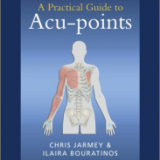Boost Your Mood With These Foods
Proper nutrition is an essential part of mental health treatment. To have a properly functioning cognitive system, the brain and body needs enough nutrients in the proper amounts. A plan to prevent and treat depression and other mood disorders should include a diet of fruits, vegetables, nuts, legumes, whole grains, and foods rich in omega-3 fatty acids. While increasing these, be sure to cut back on sugary, processed, and packaged foods that contain high amounts of preservatives.
Meal planning and efficient shopping can be a bit of a hassle, especially if you are struggling with mental health or other physical conditions. One of the benefits of home health care services is professional Registered Nurses, Registered Practical Nurses, and Personal Support Workers can help with discussing nutrition and meal plans, and Caregivers can assist with essential shopping and transportation. If a client is suffering from a mood disorder, they can also receive a referral for the appropriate therapy. If you’re in the Toronto area, Integracare’s Nurses and Caregivers will meet with clients and their families to assess dietary needs and preferences, including consideration of allergies, as a part of developing a whole, individualized person-centered care plan.
The following foods help with boosting mood and should be regularly incorporated into one’s dietary plan.
Nuts
They are great for a snack and to sprinkle into granola, salads, and incorporated into dishes like curries. Nuts are full of fibre, protein, and the good kind of fat. They are high in calories, and certain types like almonds and walnuts contain omega-3 fatty acids.
Legumes
Beans, lentils, peas, peanuts, chickpeas, and soy are all legumes. In addition to their fibre content, they have been shown to help ward off depression with age (along with several other foods on this list). Legumes support healthy gut bacteria that are good for the immune system, a large part of which is found in the GI tract. Naturally, you’d still watch for signs and symptoms of depression as there can be many other causes.
Fruits and Vegetables
Most of our diet should consist of fruits and vegetables due to their high concentrations of vitamins, minerals, and micronutrients. Eating leafy greens, root vegetables that are high fibre, as well as a variety of fruits, is associated with lowering depression. The natural sweetness of fruit will indulge sugar cravings, too.
Fermented Foods
New research suggests that healthy gut bacteria and intestinal microbiota is bolstered by fermented foods like yogurt, kombucha, kimchi, sauerkraut, and tempeh. They have high levels of probiotics which are best to absorb naturally through the foods we eat.
Whole Grains
High fibre makes another obvious appearance in whole grains. Refined and bleached flour is culled of its important nutritional value and is not good for the body or brain. Whole grains help stabilize blood sugar and regulate brain neurotransmitters.
Fish
The omega-3 fatty acids in fish may also help ease symptoms of depression. If you are worried about mercury content, go with wild salmon, tilapia, shrimp, scallops, and haddock.
Researchers have identified ten nutrients that are linked to lowering depression, anxiety, and boosting overall wellbeing. They are calcium, chromium, folate, iron, magnesium, omega-3s, vitamin B6, vitamin B12, vitamin D, and zinc. Ask your health provider which foods are best to eat to take advantage of their effects.
Make sure to regularly add these foods and supplements to your and your family member’s grocery list. If your loved one is receiving health care support services, including Caregivers who are assisting with personal shopping, notify them of these preferences and that you are interested in other natural, mood-boosting options.








